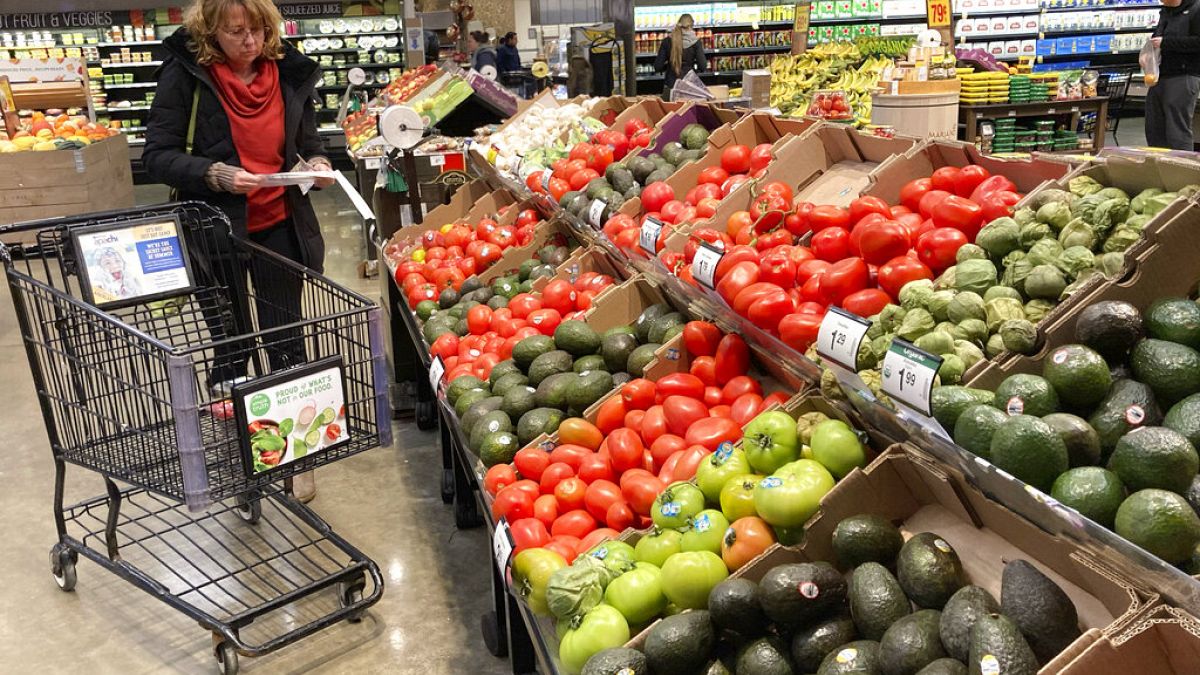The consumer price index in the 19 countries that use the euro currency hit 10% in November.
Inflation in the eurozone eased slightly in November for the first time since June 2021, but it remains in the double digits as rising food prices and high energy bills continue to squeeze budgets.
Annual inflation is expected to have reached 10 per cent in November, down from 10.6 per cent in October, according to the latest estimate of the EU's statistics body Eurostat.
Driven by energy and food, inflation had reached an all-time high since November 2021 every month. The situation had worsened since the spring with market disruptions related to the war in Ukraine.
The Baltic countries continue to be the hardest hit. Latvia, in particular, is experiencing the highest levels of inflation in the eurozone at 21.7 per cent in November, compared to 7.4 per cent a year ago.
In Estonia, inflation is further easing from a peak in August when it reached 25.2 per cent. It's expected to be around 21.4 per cent in November, the same rate as in Lithuania.
The sharpest drop in inflation was in the Netherlands, where it eased to 11.2 per cent in November compared to 16.8 per cent in October.
For more information watch the video above.



